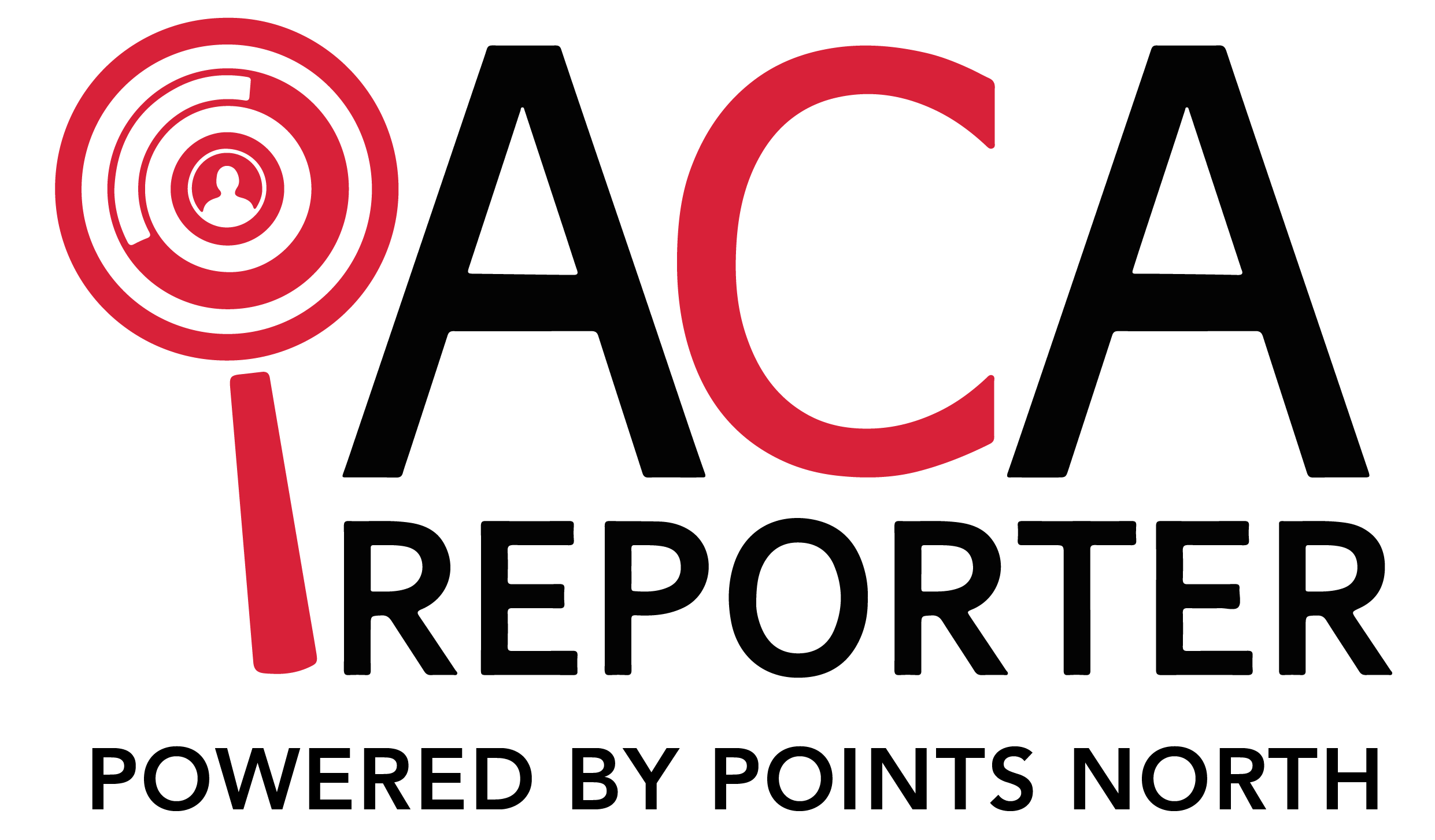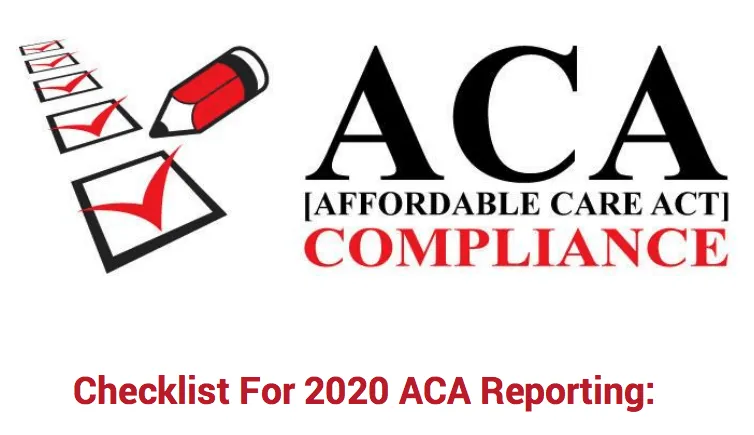As healthcare employers navigate ACA filing requirements, many business owners ask: "Does my business need to file ACA forms?" and "What are the deadlines for ACA compliance?" Understanding your ACA filing obligations is essential for avoiding costly penalties and staying compliant with federal healthcare regulations.
This comprehensive guide clarifies which employers must complete ACA filing for the 2026 filing season, explains the specific forms required, details form distribution requirements and deadlines, and provides actionable guidance to help your business maintain compliance throughout the year.
Navigate This Article
- ACA Forms Required for Compliance
- ACA Form Distribution Requirements and Deadlines
- ACA Filing Penalties
- Missed ACA Filings
- Software Solutions
Understanding ACA Filing Requirements for Employers
.png?width=800&height=563&name=aca%20filing%20requirements%20which%20employers%20must%20file%20%20(1).png)
The Affordable Care Act (ACA) imposes specific reporting requirements on certain employers to ensure compliance with healthcare coverage mandates. Whether your business must file ACA forms depends primarily on your workforce size and the type of health insurance you offer.
The 50 Full-Time Employee Threshold for ACA Compliance
The primary factor determining ACA filing requirements is the number of full-time employees and full-time equivalent employees (FTEs) in your organization. Employers with 50 or more FTEs are classified as Applicable Large Employers (ALEs) and must comply with ACA reporting and filing requirements. On the other hand, employers with fewer than 50 FTEs are generally exempt from ACA filing obligations.
It's important to note that this threshold can fluctuate from year to year. If your company is growing, you'll need to monitor your FTE count closely to ensure you comply when you reach ALE status. Learn more about managing cases like seasonal employees or temporary hires.
What Counts as a Full-Time Employee Under the ACA?
Under the ACA, a full-time employee is someone who works an average of at least 30 hours per week, or 130 hours per month. It's important to note that part-time employees can contribute to your full-time equivalent count, as well as enrollments and waivers. The IRS provides a specific calculation method to determine your FTE count, which includes part-time employee hours.
Example FTE Calculation:
For example, if you have 40 full-time employees and 20 part-time employees who each work 15 hours per week, your FTE count would be:
40 + (20 x 15 / 30) = 50 FTEs
In this case, you would be considered an ALE and required to complete ACA filing.
ACA Filing Requirements for Self-Insured Employers
There's an important exception to the 50 FTE rule: self-insured employers of any size must complete certain ACA filings, regardless of their number of employees. If you offer a self-insured health plan, you're required to report information about all employees, dependents, and spouses enrolled in your coverage.
Self-insured employers that are not ALEs use different forms (Form 1094-B and Form 1095-B) than those used by ALEs. The requirement is to provide a form and file with the IRS for every employee who enrolled in the healthcare plan, regardless of full-time status.
ACA Forms Required for Compliance
Employers who meet ACA filing requirements must submit specific forms to the IRS and distribute copies to employees. Understanding each form's purpose ensures accurate and timely compliance.
Form 1094-C: ACA Transmittal Form
Form 1094-C serves as the transmittal or "cover sheet" for your ACA filing. This form provides summary information about your organization, including:
- Total number of Forms 1095-C filed
- Information about your company structure
- Aggregated employer group details if applicable
- Monthly employee counts
Think of Form 1094-C as the organizational summary that accompanies your individual employee forms. You'll submit one Form 1094-C regardless of how many employees you have, along with individual Forms 1095-C for each full-time employee. Download form 1094-C from the IRS.
Form 1095-C: Employee Health Coverage Statement
Form 1095-C details the health coverage offered to each full-time employee. ALEs must file one Form 1095-C for every full-time employee, regardless of whether they enrolled in coverage. This form includes:
- Monthly coverage offer information for each employee
- Employee share of lowest-cost coverage
- Safe harbor codes if applicable
- Section 4980H liability indicators
Download form 1095-C from the IRS. Each Form 1095-C provides a month-by-month record of coverage offers and enrollment status for individual employees. Learn more about IRS ACA reporting forms explained.
Forms 1094-B and 1095-B for Self-Insured Employers
Self-insured employers may also need to file Forms 1094-B and 1095-B for certain covered individuals, such as retirees or COBRA recipients who were not full-time employees during the year. These forms serve similar functions to the "C" forms but are specifically designed for reporting coverage under self-insured plans. Download forms 1094-B and/or 1095-B from the IRS.
ACA Form Distribution Requirements and Deadlines

Beyond filing forms with the IRS, employers must distribute copies of Form 1095-C to employees. Understanding distribution requirements and deadlines is critical to maintaining ACA compliance and avoiding penalties.
Employee Distribution Deadline for Form 1095-C
Employers have two options for meeting their Form 1095-C distribution requirements:
Option 1: Automatic Distribution
Employers can choose to automatically distribute Form 1095-C to all full-time employees. If you select this option, there is a permanent 30-day extension to the January 31 deadline, moving the effective deadline to March 2, 2026 for the 2025 tax year (March 2 in most years).
Option 2: Notice and Upon Request
Alternatively, employers may make forms available upon request by:
- Posting a clear and conspicuous notice by January 31, 2026
- The notice must include information on how employees can request their 1095-C form
- Once an employee requests their form, the employer must provide it within 30 days of the request
Key distribution requirements:
- Distribution can be done via mail or electronically (with proper consent)
- Employees need this form to complete their individual tax returns if claiming health coverage deductions or credits
- Late distribution can result in IRS penalties of $330 per form
Important Note: Several states require Form 1095-C to be automatically distributed to employees, regardless of the federal upon-request option. See the State-Specific ACA Distribution Requirements section below for more information.
Meeting this deadline ensures your employees have the necessary documentation for their personal tax filing and helps your business avoid unnecessary penalties. Learn more about how to get a reporting extension.
IRS Filing Deadline for ACA Forms
While companies that opt to automatically distribute forms to employees must have distribution complete by March 2, 2026, there are different deadlines for filing Forms 1094-C and 1095-C with the IRS:
Paper Filing Deadline: February 28 (or February 29 in leap years)
Electronic Filing Deadline: March 31
For the 2025 tax year, these deadlines are February 28, 2026 (paper) and March 31, 2026 (electronic).
Electronic Filing Requirements:
Employers filing 10 or more Forms 1095-C must file electronically. Electronic filing also provides several advantages:
- Extended deadline (one month later than paper filing)
- Faster processing and acknowledgment from the IRS
- Reduced risk of errors through automated validation
- Simplifies resubmission process to correct errors
- Easier record-keeping and retrieval
- Real-time status updates on filing acceptance
- File electronically with the IRS
Even if you're not required to file electronically, consider doing so to take advantage of these benefits.
Electronic vs. Paper Form Distribution
Employers can distribute Form 1095-C electronically if specific consent requirements are met. Recent legislation under the Employer Reporting Improvement Act (ERIA) has streamlined electronic consent management, making it easier for employers to distribute forms digitally.
Electronic Distribution Requirements:
- Employees must affirmatively consent to electronic delivery
- Consent must be made electronically and demonstrate the employee can access forms in electronic format
- NEW: Under ERIA, employee consent remains valid indefinitely unless the employee withdraws it in writing (previously, consent needed annual renewal)
- Employers must provide clear instructions on accessing and printing forms
Paper Distribution:
- No consent required
- Forms can be mailed to employee's last known address
- Recommended to use certified mail for proof of delivery
- Consider hand-delivery for current employees to ensure timely receipt
State-Specific ACA Distribution Requirements
While the ACA is federal law, some states have additional healthcare reporting requirements. States with individual mandates—including California, Massachusetts, New Jersey, Rhode Island, and the District of Columbia—may have separate distribution deadlines and forms.
Some states, such as California, request a 1095 form for ACA non full-time employees who enrolled in your healthcare plan in addition to all FTE who received an offer.
Employers with employees in these jurisdictions should verify state-specific requirements. It's important to note that the new federal notice-and-request option under the Paperwork Burden Reduction Act (PBRA) does NOT satisfy state-level distribution requirements. Employers with employees in these jurisdictions must continue to comply with state-specific automatic distribution requirements and deadlines.
Check state requirements annually as these can change with new legislation.
Penalties for Non-Compliance with ACA Filing Requirements
Understanding the financial consequences of non-compliance emphasizes the importance of meeting ACA filing requirements and deadlines. The IRS imposes substantial penalties for employers who fail to file or distribute forms correctly and on time.
Failure to File Penalties
The IRS adjusts penalty amounts annually for inflation. For the 2025 tax year (filed in 2026):
Standard Penalties:
- Failure to file correct forms with the IRS: $330 per return
- Maximum penalty for larger employers: $3,987,000 annually
- Reduced maximum for small businesses: $1,329,000 annually (applies to businesses averaging $5 million or less in gross receipts over the past 3 years)
Reduced Penalties for Prompt Corrections:
The IRS offers reduced penalties if you correct errors quickly:
If corrected within 30 days of the deadline:
- Penalty: $60 per return
- Maximum: $630,500 (large employers) or $220,500 (small businesses)
If corrected by August 1st of the filing year:
- Penalty: $130 per return
- Maximum: $1,891,500 (large employers) or $630,500 (small businesses)
These tiered penalties incentivize employers to identify and correct errors promptly, potentially saving thousands of dollars in penalty assessments.
Note: These amounts are adjusted annually for inflation. Check current IRS guidance for the most recent penalty amounts.
Failure to Furnish (Distribute) Penalties
Separate penalties apply for failing to distribute Form 1095-C to employees by the required deadline. These penalties apply whether you choose traditional automatic distribution or the new notice-and-request system.
For the 2025 tax year (filed in 2026):
- Failure to furnish: $330 per form (same rate as failure to file)
- Maximum penalty: $3,987,000 (large employers) or $1,329,000 (small businesses)
- No penalty relief for employers who file with the IRS but fail to distribute to employees
Under the new notice-and-request system, penalties apply if you fail to:
- Post the required notice to employees, OR
- Provide requested forms within the required timeframe (later of January 31 or 30 days after request)
Intentional Disregard Penalties
Penalties for intentional disregard of ACA filing requirements are significantly higher than standard late-filing penalties. Employers who knowingly fail to file or distribute forms face:
For the 2025 tax year (filed in 2026):
- Intentional disregard: $660 per form
- No annual maximum for intentional disregard penalties
The IRS considers it "intentional disregard" when employers are aware of filing or distribution obligations but choose not to comply. The substantially higher penalties and lack of a cap make intentional non-compliance extremely costly.
The best strategy is to establish reliable systems and processes for tracking filing obligations and meeting all deadlines. Learn more about common mistakes to avoid in ACA filing.
What If You've Missed Previous ACA Filings?
If you've recently realized that you should have been filing ACA forms in previous years but didn't, don't panic. The IRS allows for back-filing, and it's always better to file late than not at all.
Back-Filing Process and Best Practices
Here's what you need to know about back-filing:
Statute of Limitations: The IRS can assess penalties for late or missing ACA forms for up to six years from the due date (or filing date, if later). This statute of limitations provides certainty for employers, though it's still crucial to address missing filings promptly.
Penalty reduction potential: While you may still face penalties for late filing, the IRS often reduces penalties for employers who voluntarily come forward to correct their filings before receiving an IRS notice. The same tiered penalty structure applies:
If corrected within 30 days of discovery:
- Penalty: $60 per return
- Maximum: $630,500 (large employers) or $220,500 (small businesses)
If corrected by August 1st of the filing year:
- Penalty: $130 per return
- Maximum: $1,891,500 (large employers) or $630,500 (small businesses)
Seek professional help: Back-filing can be complex, especially if you're filing for multiple years. Consider seeking help from a tax professional or using specialized ACA reporting software to ensure accuracy and proper code usage on your forms.
Prioritize recent years first: If filing for multiple years, start with the most recent years and work backward. This demonstrates good-faith compliance efforts and addresses the years most likely to face IRS scrutiny.
Document your reasonable cause: If applicable, document the reasons you failed to file timely (e.g., lack of awareness of ALE status, system limitations, business transitions). This documentation can support penalty abatement requests.
Remember, it's crucial to address any missing filings as soon as possible to minimize potential penalties and demonstrate good faith compliance efforts to the IRS. Learn more about historical ACA filing for Forms 1095-C and 1094-C.
Simplifying ACA Filing and Distribution with Software Solutions
Managing ACA filing requirements, form distribution, and deadline tracking can be complex, especially for growing businesses or those with variable-hour employees. ACA compliance software automates critical processes and helps employers take advantage of recent legislative relief measures.
Key automation features include:
- Employee hours tracking and FTE calculations
- Automatic ALE status determination based on monthly employee counts
- Form 1094-C and 1095-C generation with proper coding
- Electronic filing with the IRS
- Employee distribution management (electronic and paper)
- Notice-and-request system implementation for PBRA compliance
- Management of employee-requested forms and 30-day response tracking
- Deadline tracking and compliance alerts
- Back-filing support for missed years
- Annual penalty amount updates
Benefits of the new PBRA notice-and-request system:
Modern ACA software can help employers implement the new distribution option by:
- Generating compliant notices for posting on your website or employee portals
- Tracking which employees have requested forms
- Managing the 30-day response deadline for each request
- Maintaining records of distribution for audit purposes
- Continuing to file with the IRS on schedule regardless of distribution method
Automation reduces manual errors, ensures timely filing and distribution, and minimizes penalty risk while freeing up your HR and payroll teams to focus on strategic initiatives rather than compliance paperwork.
Interested in learning more about streamlining your ACA compliance? Get started with ACA Reporter today.
Key Takeaways: ACA Filing Requirements Checklist
Essential points to remember about ACA filing requirements:
✓ Employers with 50+ FTEs must complete ACA filing as Applicable Large Employers
✓ Self-insured employers of any size have ACA filing obligations
✓ File Form 1094-C and individual 1095-C forms for each full-time employee
✓ Choose between automatic distribution or notice-and-request system for employee forms
✓ Distribute Form 1095-C to employees by January 31st (or within 30 days of request)
✓ File with IRS by February 28 (paper) or March 31 (electronic)
✓ Electronic filing required for 10+ forms
✓ Separate penalties apply for failure to file ($330/form) AND failure to distribute ($330/form)
✓ Intentional disregard penalties are doubled ($660/form) with no annual cap
✓ Penalty amounts are adjusted annually for inflation—verify current rates
✓ Back-filing is possible within 6-year statute of limitations and should be addressed promptly
✓ State-specific requirements may differ from federal rules—verify compliance in all jurisdictions
✓ ACA compliance software simplifies filing, distribution, and deadline management
Protect Your Business with Proactive ACA Compliance
If you're unsure about your ACA filing requirements or need assistance with form distribution and compliance, consider consulting with an ACA compliance expert or exploring software solutions designed to streamline your reporting obligations.
Staying proactive protects your business from costly penalties, ensures you meet all federal requirements, and provides peace of mind as you navigate the complexities of healthcare compliance. With the right systems and support in place, ACA compliance becomes a manageable part of your annual HR operations rather than a source of stress and uncertainty.
Don't wait until deadlines approach or penalty notices arrive—take control of your ACA compliance today.
About ACA Reporter
ACA Reporter provides comprehensive ACA compliance software designed specifically for businesses navigating the complexities of healthcare reporting. Our platform automates form generation, manages electronic filing, tracks distribution requirements, and ensures you never miss a critical deadline. Contact us to learn more about how we can simplify your ACA compliance process.


.png)


